|
|
 |
| |
| Welcome
to the Chinese American
Scholars Association |
|
Welcome to E-Leader series, leadership conferences
that aim to train tomorrow’s |
|
 |  |
|
|
|
|
 |
| |
leaders using unique intelligent
exchanges across all academic disciplines. |
|
 |  |
|
 |
 |
 |
Recent
Events and Conferences |
|
|
| |
Click
on the image to view the
event details |
|
|
|
 |
 |
 |
|
|
|
| VIDEO
CLIP PRESENT :DOWNLOAD
( 45 MB ) |
QUICK FACTS : |
| Official
name: Slovak
Republic (short
name: Slovakia) |
| Date
of the republic's
establishment:
1.1.1993 |
| Political
system: parliamentary
democracy |
| Official
language:
Slovak |
| Capital
city:
Bratislava
(population
428 672) |
| Area:
48,845 sq
km (about
twice the
size of New
Hampshire) |
| Neighboring
countries:
Austria 91
km, Czech
Republic 215
km, Hungary
677 km, Poland
444 km, Ukraine
97 km |
| Population:
5 379 455
(51.4% women) |
| Ethnic
Groups:
Slovak 85.8%,
Hungarian
9.7%, Roma
1.7%, Ruthenian/Ukrainian
1%, other
and unspecified
1.8% |
| Religions:
Roman Catholic
68.9%, Protestant
10.8%, Greek
Catholic 4.1%,
other or unspecified
3.2%, none
13% (2001
census) |
| Currency:
Slovak koruna
(SKK) |
| Membership
of international
organizations:
OECD, European
Union, NATO,
IMF, UNAMSIL,
UNCTAD, UNDOF,
UNESCO, UNFICYP,
UNIDO, UNTSO,
WHO, WTO. |
|
Travelling to Slovakia
|
Suggested
cities to flight
from JFK
- Vienna; JFK- Prag
-Bratislava; London
-Bratislava ; Dublin
- Bratislava; Copenhagen
- Vienna; JFK-Frankfurt-Vienna;
JFK-Munich-Vienna. |
Suggested Links: |
|
| About
Slovakia |
| Slovakia
is located in the
heart of Europe, bordering
Austria, the Czech
Republic, Poland,
Ukraine and Hungary.
There's a refreshing
absence of McDonald's-style
commercialism that
is rampant across
Western Europe. Quaint
and jovial with a
surprisingly rich
cultural life, Bratislava
is a capital city
without the usual
congestion. The High
Tatras are a magnificent
range of mountains
dotted with villages
with deep peasant
traditions. You'll
find Slovaks to be
an extremely helpful,
pleasant people prepared
to go out of their
way to welcome you.
From folk festivals,
to castle tours to
snow boarding and
hiking you'll find
Slovakia a spectacular
country to visit. |
| History |
Officially,
The Slovak Republic
came into existence
on January 1, 1993.
Except for a brief
period during World
War II, during which
Slovakia was a protectorate
state of Nazi Germany,
the Slovak people
have been subjected
to domination by stronger
political entities,
such as the Czechs
of the Czechoslovak
federation, the Magyars
of the Austro-Hungarian
Empire, and the sovereigns
of the Habsburg Empire.
In 1918 the Slovaks
joined the closely
related Czechs to
form Czechoslovakia.
Following the chaos
of World War II, Czechoslovakia
became a Communist
nation within Soviet-ruled
Eastern Europe. Soviet
influence collapsed
in 1989 and Czechoslovakia
once more became free.
The Slovaks and the
Czechs agreed to separate
peacefully on 1 January
1993. Slovakia joined
both NATO and the
EU in the spring of
2004. Although the
history of the Slovak
people as expressed
in the nation state
is less than a decade
old, Slovaks have
existed as a unique
entity for over 1500
years
|
| Economy
Overview: |
| Slovakia
has mastered much
of the difficult transition
from a centrally planned
economy to a modern
market economy. The
DZURINDA government
made excellent progress
during 2001-04 in
macroeconomic stabilization
and structural reform.
Major privatizations
are nearly complete,
the banking sector
is almost completely
in foreign hands,
and the government
has helped facilitate
a foreign investment
boom with business-friendly
policies, such as
labor market liberalization
and a 19% flat tax.
Slovakia's economic
growth exceeded expectations
in 2001-04, despite
the general European
slowdown. Unemployment,
at an unacceptable
15% in 2003-04, remains
the economy's Achilles
heel. Slovakia joined
the EU on 1 May 2004.
1
Slovak koruna =
0.0305791 U.S. dollars.
For
current exchange
rate please visit
Slovak National
Bank at
www.nbs.sk/INDEXA.htm
For
interesting information
about Slovak currency,
please click
www.panorama.sk/index.asp?kam=/go/clanky/248.asp&lang=en&sv=1 |
|
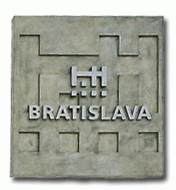
|
| BRATISLAVA
-
Just
60km
east
of
Vienna
–
is
the
capital
city
of
the
Slovak
Republic,
and
is
located
in
Central
Europe.
It
stretches
on
both
banks
of
the
Danube
river,
the
second
biggest
river
in
Europe,
and
at
the
foot
of
the
Small
Carpathians
mountains.
It
spreads
at
the
borders
of
three
countries,
neighboring
with
Hungary
in
the
south,
Austria
in
the
west
and
Czech
Republic
in
the
North.
Bratislava
has
two
distinct
sides:
the
old
quarter
is
an
attractive
slice
of
Habsburg
Baroque,
while
the
rest
of
the
city
has
the
drab,
concrete
looks
of
the
average
East
European
metropolis. |
|
|
|
|
| Bratislava
Castle : |
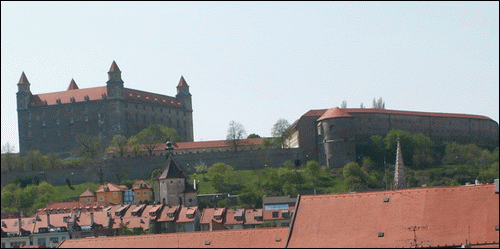 |
| The
castle dominates over
the city of Bratislava
on a hill overlooking
the river Danube.
Today the castle serves
the Slovak Parliament
and houses collections
of the Slovak National
Museum, exhibitions
of Treasures from
the ancient past,
as well as the Museum
of History. |
| Devin
Castle : |
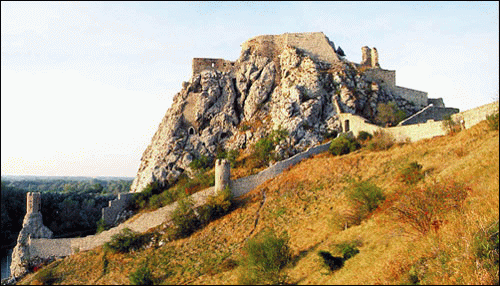 |
| The
mighty fortress above
the confluence of
the rivers Morava
and Danube is one
of the most significant
archaeological sites
in Slovakia. The oldest
traces of settlement
date back to 5000
BC. In the 1st century
BC, the territory
was populated with
Celts. At the times
of the Roman Empire,
Devín was an
important military
station and, at the
times of the Great
Moravian Empire, the
castle was a significant
boundary fortress
as well as one of
political and administration
centres. The first
written reference
comes from 864. After
the fall of the Greater
Moravian Empire, the
castle served as a
border castle of the
Hungarian state. Later
the castle changed
its owners several
times. In 1809, the
castle was blown up
by Napoleonic troops.
The castle is a national
monument of cultural
legacy belonging to
the Municipal Museum
at present |
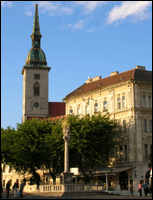
|
| St.
Martin's
Dome:
|
The
tower
of
the
church
was
constructed
simultaneously
with
3
naves
of
the
church,
while
it
was
an
integral
part
of
city
walls
serving
to
defend
the
town.
In
the
16th
century,
the
Dome
witnessed
the
coronation
of
Hungarian
Kings.
During
1563
-
1830,
11
Hungarian
Kings
and
eight
royal
wives
were
crowned
here.
Beethoven's
Missa
Solemnis
was
played
for
the
first
time
in
this
church.
|
|
|
|
| |
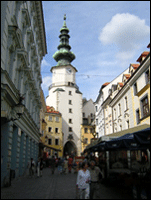
|
| Michael's
Gate
: |
The
only
preserved
gate
of
the
medieval
city
fortifications.
Its
Gothic
foundations
were
laid
in
the
1st
half
of
the
14th
century.
During
1511
-
1513
it
was
heightened,
and
during
1753
–
1758
it
was
rebuilt
into
its
present
appearance
when
a
statue
of
St.
Michael
was
placed
on
the
top
of
the
51-metre
high
tower.
At
present,
the
Museum
of
Weapons
and
City
Fortifications
is
located
within
the
tower.
|
|
|
|
|
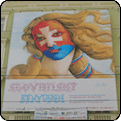 |
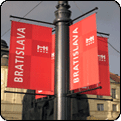 |
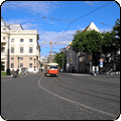 |
| Culture
|
|
|
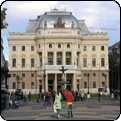 |
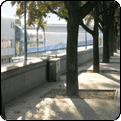 |
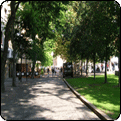 |
| Slovak
National Theatre
|
|
Bratislava
old town park.
|
|
| NIGHT
LIFE |
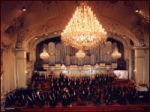
|
| Opera
|
The
Opera
in Bratislava
is popular
among
international
visitors
- for
its
quality
as well
as favourable
prices.
The
Opera
of the
Slovak
National
Theatre
is located
right
in the
center
of the
city
on Hviezdoslavovo
Square. |
| Concerts |
| The
Slovak
National
Philharmonic
is a body
of international
reputation,
already
in its
55th season.
Most concerts
are held
at the
Philharmonic's
Reduta
building
just off
the Hviezdoslavovo
Square
(behind
Hotel
Carlton). |
|
|
| Bars |
People’s
in the Hviezdoslav
square across from
the Opera of the National
Theatre was rated
as 2nd Best Restaurant
in Slovakia overall
by Trend Top 2004),
Paparazzi
right around the corner
offers yuppieish crowd.
The Coctail Bar on
Panska , Greenwich
Pub on Zelena, known
to the locals as the
Coctail Bar serve
excellent food. The
recently opened Sparx
in the building of
the former largest
beerhall in central
Europe on Cintorinska
draws large party
crowds.
Outside of the centre
but well worth a taxi
ride is Harley
Davidson, popular
bar not only for bikers
playing mainly rock
and oldies. |
|
|
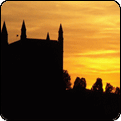 |
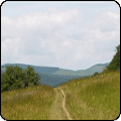 |
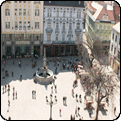 |
| BRATISLAVA
CASTLE |
SLOVAKIA
MOUNTAINS |
MAIN
SQUARE in
BRATISLAVA |
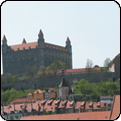 |
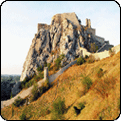 |
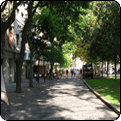 |
| BRATISLAVA
CASTLE |
DEVIN
CASTLE |
BRATISLAVA
OLD
TOWN PARK |
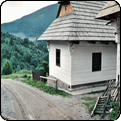 |
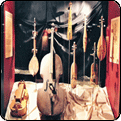 |
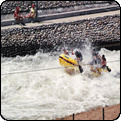 |
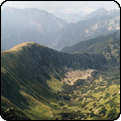 |
|
|
DUMBIER
- NIZKE
TATRY |
|
|
|
|
|
|
|
 |
 |
 |
|  |
|
|
|
OUR MAILING
ADDRESS
CASA,
P.O.BOX 2093,
Fort Lee, NJ, 07024, USA.
|
|
|
|
|
|
|